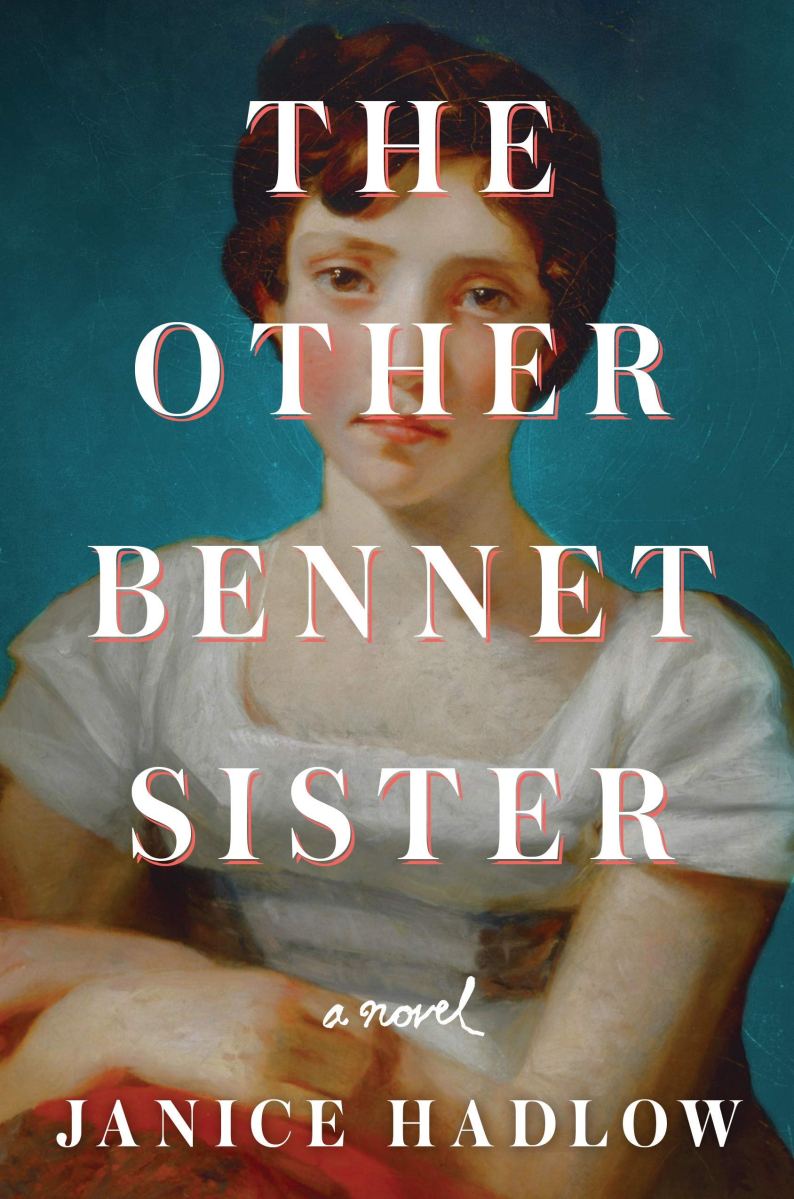This past Shabbos, I began "The Other Bennet Sister" by Janice Hadlow, and while I am only fractionally in, I am already charmed.

I have read a number of homages to Austen, and so far, Hadlow's is the most satisfying. She captures the language and sensibilities beautifully. The story initially runs parallel to "Pride & Prejudice," through Mary's eyes, intertwining, at times, Austen's dialogue with Hadlow's, and they seamlessly flow together.
Mary is "The Other Bennet Sister," and she is captured in a heart-breaking light. Sandwiched between four beautiful sisters, Mary, the only plain one, finds herself scorned by her mother and ignored by her father, who only cares for Elizabeth. She becomes serious and pious as an attempt to overcome this "shortcoming," feeling rather lonely.
In terms of Shidduch Lit, her interactions with Charlotte Lucas definitely qualify. "[Mrs. Bennet did not] hesitate to dwell, with all the sympathy at her command, upon the disappointment [Lady Lucas] must feel at Charlotte's still remaining unmarried at the age of twenty-six, especially as there seemed so little chance of her changing her situation."
Charlotte and Mary have a number of interactions, and it is with Mary that Charlotte reveals her impatience and frustration. While Bingley leads her out for the first dance at the Meryton Assembly, he makes his preference to Jane clear by the dances following.
"I know very well what I must say next," continued Charlotte. "I must smile and nod and look unconcerned at my dismissal, whilst laughing and teasing Jane about her new conquest. And that is what I will do. I'm used to it. but I tell you what it is, Mary—I'm not sure if I can do it for much longer. . . I am nearly twenty-seven years old. And not once has anyone looked at me with the admiration Mr. Bingley is now directing at Jane. Not once have I been the one around whom other women gather, congratulating, and exclaiming. No—it is always my lot to cheer the triumphs of my friends. . . Lord knows, I don't expect much. But I should like to have something of my own before it is too late. Some mark of affection, some sign I have been wanted and preferred."
"You have parents who love you," ventured Mary, "and brothers and sisters to care for."
"Yes," replied Charlotte, "and I know that should be enough, but with every day that goes past, I find that it isn't, quite."
Charlotte later says: "When I was about your age, I imagined marriage was a reward for good behavior and patience. I thought if I was good and obliging and did as I was told, it was inevitable that I should end up as someone's wife. If it didn't happen this year, then surely it would in the next. But I waited and waited and smiled and smiled, and yet here I am—a single woman still."
She then describes the sorry state of old maids, who have no means of support, and who are looked down upon and condescended to by society. She has decided to threaten herself by embracing spinsterhood the following year, and is now putting all her focus in securing a marriage partner.
" . . . I'm prepared to do anything I can—within the bounds of propriety, of course—to find a respectable man to be my husband. If such a one were to cross my path tomorrow, I should not answer for his chances of escaping me."
Charlotte, plain like Mary, sees in her a woman of similar situation, and feels she can be honest with her in a way she cannot be with Lizzie. Lizzie is young and beautiful, and can talk of love marriages. But Charlotte will not, cannot, wait for love. She wants a home of her own. She wants status. She wants to be married.
She tells Mary: "Don't waste time as I have done waiting for something to happen. Fortune really does favor the brave, you know. Don't believe you can find happiness celebrating the good fortune of others. An eternity spent smiling and cooing over the good luck of your friends makes the heart sick in the end. And above all, don't long for what you cannot have, but learn to recognize what is possible, and when it presents itself, seize upon it with both hands. It seems to be the only route to happiness for those of us born with neither beauty, riches, nor charm."
OK, my hands are cramping with how much I've quoted, but these passages really spoke to me. For a long long time I had to go to vort after vort of "baby" cousins, smile and be gracious and wish Mazel Tov while I wondered what the heck I was doing already that rendered these kiddies married while I remained the unmarried freak.
Anywho, like I said, I'm not that far in. I'll let you know if I liked the ending.
No comments:
Post a Comment